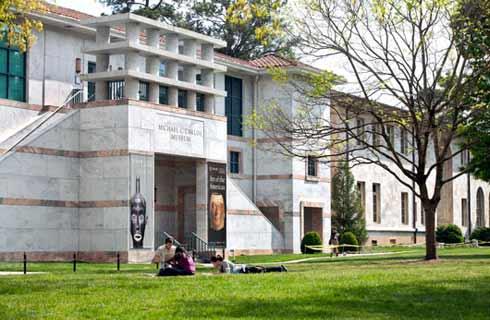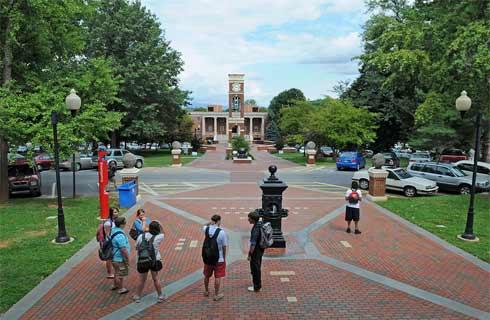全球研究文学学士
Bachelor of Arts in Global Studies

学历文凭
Bachelor Degree

专业院系

开学时间

课程时长

课程学费

国际学生入学条件
Undergraduate Applicants are required to submit the High School transcripts or its equivalent. Applicants for admission to Long Island University's Global College should have a minimum 2.50 GPA to be considered for admission.
Minimum Scores for full admission:
TOEFL: 75
IELTS 6.0
We accept students on a rolling basis throughout the year. Deadlines: May 1 for Fall enrollment; November 1 for Spring enrollment.
IDP—雅思考试联合主办方

雅思考试总分
6.0
- 雅思总分:6
- 托福网考总分:75
- 托福笔试总分:160
- 其他语言考试:PTE-50, Duolingo-100
CRICOS代码:
申请截止日期: 请与IDP联系 以获取详细信息。
课程简介
LIU Global offers a BA degree in Global Studies, a discipline that investigates the world's interdependent political, economic, cultural, and ecological systems. Global Studies equips future leaders with tools to address challenges that transcend national and disciplinary boundaries, preparing them to develop solutions at the local, national, regional, and global levels. LIU Global organizes its curriculum around six issues that pose the greatest challenges to human wellbeing:<br><br>Economic inequality, poverty, and access to livelihoods<br>Social inequality: gender, race, ethnicity, and human development<br>Climate change, clean energy, and environmental degradation<br>Urbanization and sustainable human settlements<br>War, conflict, and displaced peoples<br>Justice, discrimination, and human rights<br>LIU Global teaches students how these challenges take different forms in different locations, thereby developing skills in adaptation and empathy as each locale articulates the particularity of its engagement with these issues. By addressing each issue through multiple lenses, students gain the skills in analysis and problem-solving that these complex challenges demand. Four lenses make up the core of LIU Global's analytical method:<br><br>Environmental<br>Political<br>Cultural<br>Economic<br>Through a stair-stepped core curriculum, students gain proficiency in applying the lenses, learning how each one foregrounds certain aspects of a global issue while leaving others in the background. Comparing lenses, locations, and analyzing the interconnection of various factors that contribute to both problems and solutions, students learn how to address the complexity that makes these issues global and enduring.<br><br>Experiential learning lies at the core of LIU Global's education. Students connect their classroom learning to life outside it through site visits, field trips, and immersive experiences such as home stays, service learning, and internships. Combined with the focus on global challenges, LIU Global's experiential curriculum displays a practical orientation. Students learn by doing. As learners and guests in their host countries, such doing means dialogue, humility, and working together with those who are impacted most directly and forcefully by the global challenges that ground the curriculum. Through such experiential learning, students learn how to enter into relationships infused with respect and reciprocity so as to draw on all the expertise and will that these enormous challenges demand
相关申请
 预科
预科 奖学金
奖学金 实习机会
实习机会 在校学习
在校学习 跨境学习
跨境学习 校园授课-线上开始
校园授课-线上开始 在线/远程学习
在线/远程学习
开学时间&学费
学费信息仅供参考,请与IDP联系以获取详细信息
| 开学时间 | 时长 | 学费 | 地点 |
|---|
本校相关课程

家庭护士从业人员高级证书
学历文凭
Graduate Certificate
开学日期
课程费用总额


成人护理从业人员高级证书
学历文凭
Graduate Certificate
开学日期
课程费用总额


家庭护理从业者理学硕士
学历文凭
Masters Degree
开学日期
课程费用总额


成人护理从业者理学硕士
学历文凭
Masters Degree
开学日期
课程费用总额


电视写作与制作美术硕士
学历文凭
Masters Degree
开学日期
课程费用总额


教育学硕士-向其他语言使用者讲英语(TESOL,K-12)
学历文凭
Masters Degree
开学日期
课程费用总额










 美国
美国
